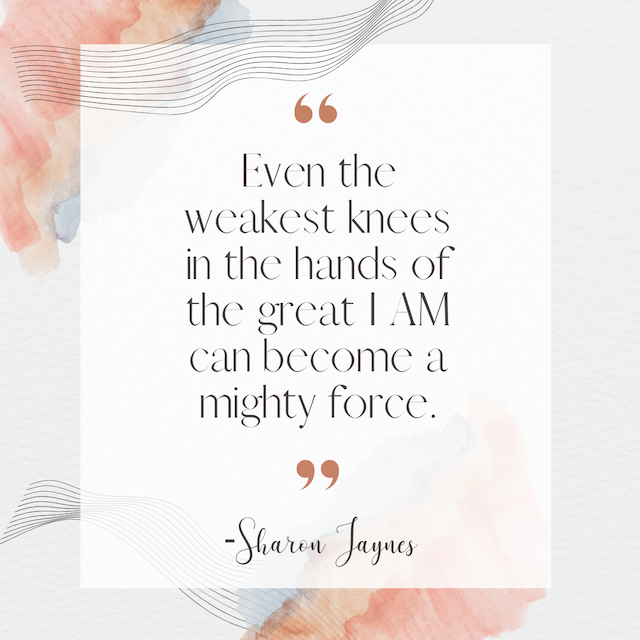My Strength and My Song

The passage Isaiah 12:2 was bestowed to me by a close friend soon after I became a Christ follower, many decades ago. He presented it to me in a nice wood-framed plaque, and it hung in my office for many years, a quiet reminder of God’s goodness in my life. Even to this day, I consider it my life verse.
“…For the Lord God is my strength and song, And He has become my salvation.” NASB*
These are weighty, substantive words to me. The God of the Universe loved me so much that He redeemed my being, my abilities, my sense of self—and my art. He offered me a brand new melody, a brand new lyric, a brand new groove. And that song changed everything for me.
Just recently, however, I was listening to someone who referenced this verse, but he used the NIV translation, which substitutes the word “song” with the word “defense.” Which I found odd.
Mind you, this is a passage that I’ve leaned into throughout my life and quoted many times. So for me, it was akin to changing the words to the Pledge of Allegiance or rewriting the Doxology. You just do go around changing a person’s life verse willy-nilly.
So I tried a little Googling to figure out why these two words could be interchangeable. And I didn’t find much in response. Basically that the Hebrew word is zimrath, which primarily translates to “song, melody, psalm” and secondarily translates to “strength.” Some translations used the former, and other translations used the latter. There is also a verse which refer to “strength and shield”** which implies defense, related but different. But I’m not a Biblical scholar, so I left it at that.
Instead, I asked myself, what does this imply to me personally? Do the words “song” and “defense” metaphorically relate to one another as it relates to my life? I’ve blogged before about the phrase “sing a new song,” and this does shed some light. We are the new song which God sings into the universe, as He writes His symphony of redemption through us. I like the idea that we are God’s melodies which he composes, and we harmonically ebb and flow into a universe that he is in the process of redeeming for Himself.
But think of it another way. If I were forced to defend my life—if I were to be called into a court of law to prove the essence of who I was and I how acted—would my “song” be used in evidence against me or for me? And more specifically, as an artist of faith, would the body of my creative work point to a life worth defending?
Tens of thousands of songs. Dozens of albums. Scores of scripts and screenplays. Hundreds of blog posts. Thousands of worship services. A few books and manuscripts and patents. No small amount of time well beyond the 10,000 Hour Rule. Did I waste my life? Does my work matter? Have I expressed my faith well? Have I stewarded the talents God gave me in a way that actually made a difference—in the lives of people and in the furthering of His Kingdom?
Honestly, I don’t know the answer, and I won’t know, at least in this lifetime. But it’s a sobering thought, one I think every artist of faith should ask themself. What do you think?
*NOTE 1 : This phrase is also seen in a few other passages, e.g., Exodus 15:2, Psalm 118:14. **NOTE 2: Psalm 28:7
[Banner photo by Marcus Woodbridge on Unsplash.]






